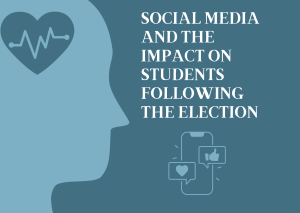GS students concerned about future of HOPE scholarship
September 15, 2016
The HOPE scholarship, a state funded scholarship that sends millions of Georgia students to college, could be out of money by 2028, according to a recent report by the Committee to Preserve HOPE Scholarships.
The report states that though lottery spending is up, the need for scholarships is steadily increasing, and the spending is not enough.
“Despite a tidal wave of cash from the Georgia Lottery, demand for tuition assistance among Georgia families is overtaking the ability to fund the scholarships as intended,” Chip Lake, President of the Committee to Preserve HOPE Scholarships, said in a cbs46.com article.
Peter Gardner, freshman physics major, believes that the state of Georgia will find some way to keep funding for HOPE, if the program does run out of money.
“By the time it runs out, the state will likely have a solution. Either higher taxes, or raising the taxes on the lottery,” Gardner said.
Some lawmakers have proposed other methods of funding the scholarship, such as legalizing casinos, an wabe.org article reported.
In a statement released by the Georgia Student Finance Commission (GSFC), the commission acknowledges the committee’s report but sites various reasons why program costs could be affected.
“The Committee to Preserve HOPE Scholarships is a private entity with no affiliation with the Georgia Student Finance Commission (GSFC). We just received this report and look forward to analyzing it over the coming days. As with any long-term projection, it is critical to understand that there are many factors that can impact program costs – tuition, enrollment, etc,” the GSFC said.
Though the potential for lack of HOPE won’t affect current college students, it will most likely affect children that are currently in Pre-K and Kindergarten.
Roikiesha Tennant, junior nursing major, has a younger sibling that this could possibly affect. She is currently on the HOPE scholarship.
Tennant said, “[The scholarship] shouldn’t [run out] because the students work too hard for it.”







